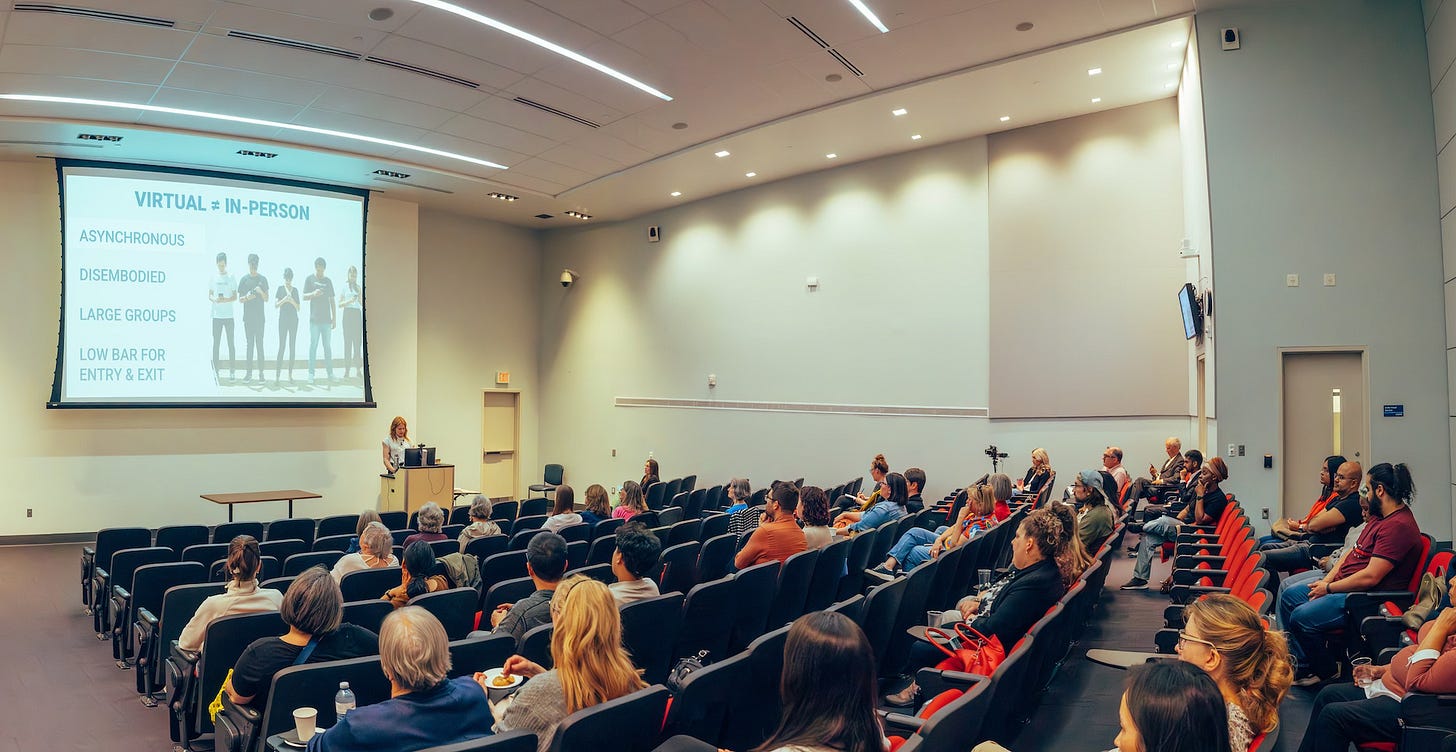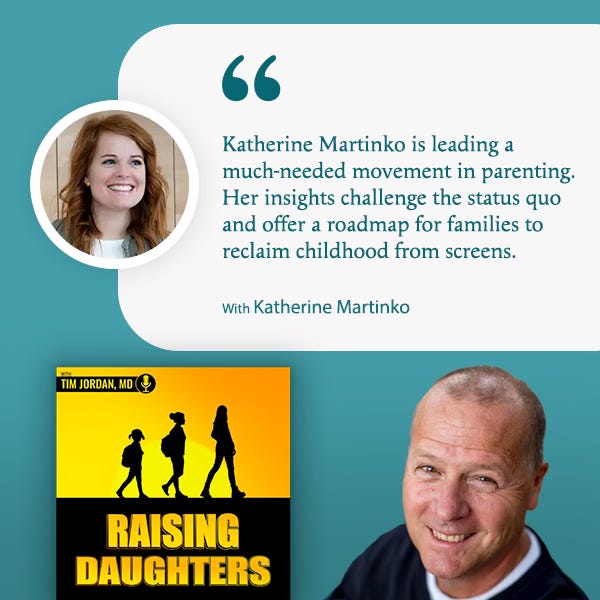It wasn't that long ago that, if a child spent too much time in front of a gaming console or a computer, their parent would view it as a problem. They would tell their kid to get off the device, go outside and play, find some friends. They’d worry their kid was different from other kids, not doing enough of the stuff they should be doing. The lure of the device was viewed as a force that needed to be actively resisted.
But something has shifted over the past 10-15 years. Rather than viewing kids' compulsive screen time as an aberration from the norm and something to fight against, we as a society have become conditioned to accept it. The sight of kids with their eyeballs glued to screens no longer shocks or disturbs us. It has become the norm. Not only that, in many cases we've begun to praise it, perhaps as a way of assuaging our own guilt at letting it happen.
In their excellent 2018 book, Screen Schooled, American teachers Matt Miles and Joe Clement describe an increasingly common attitude of passive acceptance when it comes to tech. Adults seem resigned to the fact that "this is just how kids are today." If that was the case 7 years ago, it’s even more relevant now.
Assumption #1: Tech Is Too Hard to Regulate
The slippery slope begins with an initial assumption that tech is too hard to regulate. It was easier to rein in when it consisted of enormous desktop computers and heavy TVs that never budged from their permanent spot, but with the spread of small portable devices, the battle started to feel hopeless. I see this in discussions about AI, where the tendency is to throw up our hands and say, “It’s pointless! It’s inevitable!” The subtext is, “Don’t even try. Just let it take over.”
Clement and Miles say it is even harder for teachers, with students bringing anywhere from one to three devices of their own into the classroom, which means a teacher could be stuck trying to oversee the proper use of 50+ devices. They give an example:
Once, after confiscating a student's smartphone, and then their Apple Watch 10 minutes later, I found him playing a game he had downloaded to his graphing calculator—a last resort for digital amusement.
This assumption isn’t wrong. Regulation is harder than ever. But that doesn’t mean you shouldn’t try. Yes, you might need to take drastic measures, confiscate devices from resistant teens, delay ownership, be more vigilant about what they’re doing, make tough calls that strain your relationship with your kid.
Sometimes regulation isn’t nearly as complicated as it seems; it’s just socially difficult. School administrators could easily ban all smartphones for the entire school day, effective immediately, but no one wants to be the bad guy, the person who takes all the blame for cracking down.
So, is regulation really all that hard, or are we just weak and scared and unwilling to do it—we adults who are equally enamoured of our devices as our children are? This is our job. As parents and guardians and teachers, we have no choice but to rise to the occasion and fight the battles of our time, on behalf of the next generation, whether we want to or not.
Assumption #2: The Battle Isn’t Worth Fighting
Once we assume regulation is too hard, we convince ourselves of a second assumption, which is that the battle isn’t worth fighting after all. We whisper to ourselves that “maybe tech isn’t so bad” and “it’s the way of the future, right?” We justify our cowardly inaction by telling ourselves it’s not so urgent, after all.
When parents and students are confronted with the facts about the addictive nature of gaming and social media, they often tend to respond with, "So what?" There's a sense that it's still better than being addicted to drugs, gambling, or alcohol, so why not just let it be? Isn’t it better to be hooked on Fortnite than fentanyl?
Perhaps, but what a pathetic standard to adhere to. Don’t you want better for your kid? Being “better” than drugs and alcohol is hardly a glowing endorsement, and the negative effects of excessive screen time are not exactly negligible, as any well-informed reader should know. (For a refresher, grab a copy of my book, Childhood Unplugged, or read my recent post on primary and secondary harms.)
There are countless alarming anecdotes about kids struggling to manage their tech addiction, at the cost of everything else—and whenever I hear about these, I can’t help but think, “Where is their parent?” No one else is coming to save your kid from their bad phone habits, so if they need help, it’s got to be you who steps up.
One slide I use in my presentations that never fails to elicit a collective gasp from the audience (it comes via my Anxious Generation colleague Catherine Price, who wrote How to Break Up With Your Phone) is a heartwrenching post by a 15-year-old boy on Reddit who spends nearly 15 hours a day on his phone and wishes desperately he could do other things, but feels "crippled" by his addiction.
A kid like that doesn't need the adults in his life to brush away his addiction as fairly harmless, or less harmful than drugs or booze, or even “that just what kids do nowadays.” He needs help, a serious intervention, as badly as any addict. This is a battle worth fighting every step of the way.
Assumption #3: Tech Is a Great Thing!
Once parents believe that fighting technological creep is futile, and that kids spending all their time on devices is not harmful, they are then "primed for the third assumption—spending all day on technology is actually a good thing." They tell themselves that the resulting digital natives will be tech-enhanced superkids, with superior communication skills and an impressive breadth of knowledge based on the fact that they can look up anything, anytime, anywhere. Unfortunately, that’s not the case.
The more time kids spend online, the worse their communication skills seem to get. The more anxious, depressed, isolated, inept, unhealthy, sleep-deprived, insecure, apathetic, bored, disinterested, and distracted they become. They do not flourish in this environment. They shrivel up, failing to meet their potential, missing out on amazing opportunities, losing perspective on how great a life lived in reality could be.
Much of this is driven by the rise in educational technology, based on an absurdly idealistic belief that laptops and Chromebooks can suddenly transform kids' predisposition to play into a fierce new commitment to learning. Clement and Miles quote neuroscientist Susan Greenfield:
If you think about this claim, it's based on the assumption that the only thing keeping flocks of young people from filling up libraries for the purpose of voluntarily researching and learning on their own was that they didn't have a ride.
If kids were using tech to build on knowledge they already possessed, it could be beneficial. But tech is replacing knowledge and basic skills, rendering children totally incompetent and ignorant once their digital crutch is removed. Contrary to what parents and teachers may believe, kids do not use screen time constructively. Mostly they consume passively, only dedicating 3% of time, on average, to "content creation," such as real writing, taking creative photos, coding, music composition, etc.
Clement and Miles point out that teachers do not use advanced technology like spreadsheets, coding, and data analytics to engage students in the classroom; rather, they resort to "edutainment," the gamification of educational topics to "sneak learning into the digital playground." They think this is ridiculous:
Teachers aren't stepping up into digital natives' alleged advanced digital world. They're having to dumb down everything in order to step down into kids' simplified digital existence.
We're not challenging students to meet us where they need to be; we're catering to their shallow, untrained tastes, which ends up helping no one in the long run. If rigor is never introduced throughout a child's education, even as they get older, what will happen when they enter the workforce? Will employers be expected to gamify everything for them, as well? When will kids learn how to focus, if not in school?
What Happens to These Kids?
Passively accepting these assumptions as inevitable can have a real impact on young people's lives. The authors describe failure to launch, with "living at home with parents" now being the most common living arrangement for people aged 18 to 34. They add, "This is the first time since 1880 (when this data was first collected) that more of this demographic lived with their parents than a spouse or partner or on their own."
Furthermore, the number of 22- to 30-year-old men with less than a bachelor's degree who reported not working at all in the last year has more than doubled since 2000, 9.5% to 22%, and the same demographic has seen a surge in time spent on technology, from 3.4 hours a day to 8.6.
The implication is that access to gaming, social media, and the Internet helps to enable young people's stasis (among other factors, of course). It's a lot more appealing to sit at home and not pursue adult responsibilities when you have a virtual universe to escape into.
I suspect this pattern is established from a young age, when parents keep little ones inside with the help of screen-based entertainment; otherwise, there’s no way kids could spend that many hours contained within the four walls of a house without both parent and child going crazy. Kids who are not being sedated by screens desperately need to burn off energy outdoors or through some form of physical activity.
Resistance Is Not Futile
Technological advance is not the culprit here, but allowing it take over every aspect of a child's life with zero pushback from adult guardians and educators is a problem. I'm not anti-tech; I do not dream of a world where laptops and Wi-Fi and smartphones don't exist. But neither do I want them to push everything else that is important and good out of the way.
Digital devices and online entertainment cannot be allowed to colonize childhood in the way that they have recently, and that requires vigilance on the part of adults—adults who actively resist succumbing to the three assumptions laid out in this post. Resistance is never futile; it is always worthwhile. It achieves results and it sets an example for the kids, who are always watching, and are keenly aware of our efforts to protect them—or not. The choice is yours.
You Might Also Like:
Upcoming Talk–June 6, Milton ON:
If you happen to live near Milton, ON, I will be giving a public talk at the Sherwood Library on Friday, June 6 at 7PM. The speaking gigs continue to keep me busy. I was in Washington state last week and am off to Arkansas next week! Please reach out if you’re looking to book a speaker in the coming school year. Find contact information on my website.
Recent Podcast:
Several weeks ago, I had a great conversation with pediatrician Dr. Tim Jordan for his podcast, Raising Daughters. Obviously I am raising sons, not daughters, but my advice is applicable to all children! You can see and listen to the episode here on YouTube.








When I was growing up the enemy was television. This was over 60 years ago of course. My mom had some rules: No TV before 5:00 and no TV after supper, which was 6:00, and no more that 30 minutes per day, except the Disney show on Sunday, which lasted an hour. I think she wanted some peace to make supper. We all turned out fine, all readers, and all over educated, outdoors types. I think you are dead on about rules. The thing is, we have to obey them ourselves, including too much time on the internet! I don't do social media and have no regrets, but I need to weed out the number of organizations that send me emails. All worthy causes that eat up time I could be weeding, planting, walking in the woods, riding a bike, or listening to the myriad of pollinators that simply adore the persimmon tree I planted 16 years ago. The hum is music.
Sigh! I took our kids to the library to sign up for the summer reading challenge and was frustrated to find out the theme was video games. (The kickoff event involved sitting outside the library in a trailer to play video games !!) We decided to visit a neighboring town’s library only to discover the activity of the day was a video game themed scavenger hunt! The librarian was explaining to my kids that the quality/quantity of reading does not matter for the summer reading challenge. Well, it matters to me!! I understand they are trying to make sure it’s inclusive to all reading levels but it seems like a rather low bar. We just decided to do our own family reading log and I will buy prizes for the kids! A little frustrating/concerning to encounter this at the library of all places!